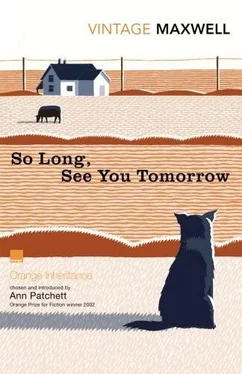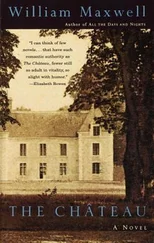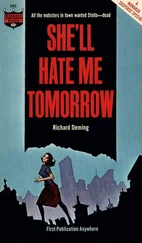The dog came racing down the lane and threw herself upon Cletus, and he let the bicycle fall and buried his face in her fur. But after that, nothing was the way he thought it would be. He had expected to follow his father around, helping him with whatever he was doing, and instead they sat in the house all afternoon, trying to think of things to say.
"Thou shalt not bear false witness," the Bible said — but why not, if the jury couldn't tell the difference between the truth and a pack of lies and neither could the judge? Dressed in black and wearing a veil as if she was in mourning for him, dabbing her eyes with her handkerchief, she fooled them all. The Bible also said, "Thou shalt not covet thy neighbor's wife," and he was ordered to pay them fifty dollars a month. That was their reward, for breaking the Ten Commandments.
How was he to explain this to a half-grown boy? Also he was ashamed — ashamed and embarrassed at all his son had been put through. He knew that Cletus would have preferred to stay out here with him and he couldn't even manage that.
As a result of that humiliating day in court Clarence Smith's sense of cause and effect suffered a permanent distortion. His mind was filled with thoughts that, taken one by one, were perfectly reasonable but in sequence did not quite make sense.
He had no idea how long some of his silences were.
At last the hands of the clock allowed him to say, "It's time you were starting back to town."
"Can't I stay and help with the milking?"
"You don't want to be on the road on a bicycle after dark."
"I could get out of the way if a car comes."
"You better go now. Your mother will worry about you."
He waved goodbye to his father, who was standing on the porch steps, and kicked the standard of his bicycle up into the catch on the rear mudguard and said, "No, Trixie. Don't look at me like that. You can't go with me. . No. . No, do you hear? No!"
On the following Saturday he asked his mother if he could ride out to the farm and again she said, "I'd rather you didn't."
She couldn't bear to tell him that his father had sent word by a neighbor that she was not to let him come any more.
Whether they are part of home or home is part of them is not a question children are prepared to answer. Having taken away the dog, take away the kitchen — the smell of something good in the oven for dinner. Also the smell of washday, of wool drying on the wooden rack. Of ashes. Of soup simmering on the stove. Take away the patient old horse waiting by the pasture fence. Take away the chores that kept him busy from the time he got home from school until they sat down to supper. Take away the early-morning mist, the sound of crows quarreling in the treetops.
His work clothes are still hanging on a nail beside the door of his room, but nobody puts them on or takes them off. Nobody sleeps in his bed. Or reads the broken-backed copy of Tom Swift and His Flying Machine. Take that away too, while you are at it.
Take away the pitcher and bowl, both of them dry and dusty. Take away the cow barn where the cats, sitting all in a row, wait with their mouths wide open for somebody to squirt milk down their throats. Take away the horse barn too — the smell of hay and dust and horse piss and old sweat- stained leather, and the rain beating down on the plowed field beyond the open door. Take all this away and what have you done to him? In the face of a deprivation so great, what is the use of asking him to go on being the boy he was. He might as well start life over again as some other boy instead.
Just when she had about given up hoping, the widow met Lloyd Wilson's wife and was much taken with her.
Fingering a list of things that only she knew where to put her hands on, in chests and dresser drawers and cardboard boxes pushed back under the eaves in the attic, Marie Wilson made polite conversation. She could hardly believe the disorder and filth that met her eyes everywhere she looked. The windows were so thickly coated with dust and cobwebs you could hardly see out of them. The table runner on the parlor table had ink stains on it, and somebody had burned a hole in the big rag rug that it had taken her all one winter to make. She knew without having to look that no broom ever went searching for lint under the beds. The place hadn't been aired for weeks, and the whole house but especially the downstairs bedroom stank of kerosene and sweaty clothing and stale human breath. Clapping her hands together she caught a clothes moth.
What the widow was waiting for as she talked on and on was a sign that the approval was reciprocated. Sitting on the edge of her chair, Marie Wilson said, "That's quite true," and "I know what you mean," and "I'm sure you're right," and finally, reaching the end of her patience, she said, "I'm afraid you'll have to excuse me, I have things to do." Still talking, the widow followed her up the attic stairs.
But it was the little boys that upset her most. They were thin and pale and answered her questions listlessly, as if they were addressing a stranger. She said, "You know that your father wouldn't let me take you with me?" and they nodded. She brushed the hair out of their eyes, and kissed them, and touched them on the cheek and on the shoulder as she talked to them, and the strangeness wore off eventually. After that they wouldn't let her out of their sight. As she bent down to say goodbye to them they both started to cry.
Lloyd had driven in to town to get her and when she had gathered up what she wanted he drove her back. She did not criticize the widow's housekeeping. It was his business who he got to look after him. They had sat in an uncomfortable silence all the way out to the farm, but now he began to talk about the possibility of his finding a place somewhere in Iowa — which would mean that she would never see the boys at all. She asked him to bring them in to town now and then to spend the night with her and he answered, "It would only make it worse for them." After which they both relapsed into silence. He could feel that there was something on the tip of her tongue which for some reason she kept deciding not to say. When he stopped in front of the boarding house where she was now living she started to get out of the buggy and then turned to him and said, "I know you don't care in the least about me, or your daughters, but I don't see how you could do that to Clarence."
He looked down at his hands, with the reins looped through his fingers, and didn't answer.
It rained and rained, and when the sky cleared there was a light frost. The leaves started falling, and the dog could see stars shining in the tops of the trees. Having run away and been whipped for it until she could hardly stand, she stayed on the property. If she went looking for the boy it was never farther than the foot of the lane. Sometimes Clarence forgot to feed her and she had to remind him. What he put in her pan was not at all like the scraps the woman used to give her.
The lawyer who had presented Clarence's case in court so badly sent him a much larger bill than he had expected. Though there was plenty of work that needed doing outside, he sat in the house brooding. The dog came and stood looking in at him through the screen door, and he burst out at her in a rage and she crept away.
Lloyd Wilson went to see his wife and asked her once more to divorce him so that he and Fern could marry. She listened to what he had to say and then replied that she would think about it. From her tone of voice he knew what her answer would be. She was not going to divorce him, and he had no grounds for divorcing her.
Her eyelids were closed but Fern wasn't asleep. She knew that she slept sometimes, because she passed in and out of dreaming. Daybreak was a comfort. The birds. A rooster crowing. It meant that time existed. At night everything stood still.
Читать дальше












